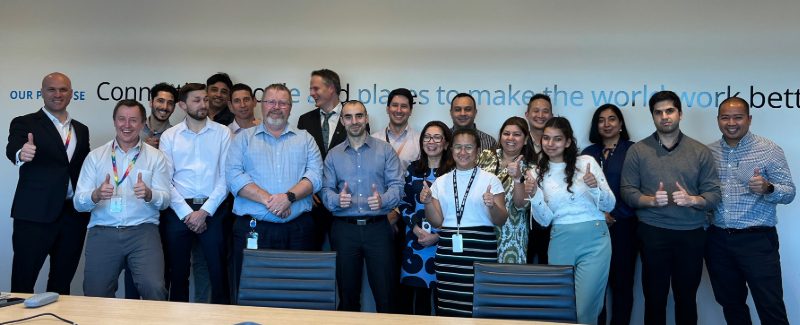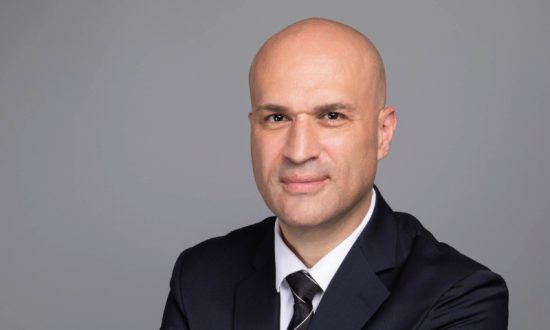Zeljko Ivkovic is a seasoned IT executive with extensive experience in APAC, currently serving as Regional CIO at a leading facility management company. With a strong background in IT strategy, M&A, and SAP migrations from his time at BOSCH, he has successfully led digital transformations across diverse industries. Holding an MBA from Fudan University and a Computer Science degree from the University of Applied Sciences Karlsruhe, Zeljko is passionate about driving innovation and business growth through technology.
Recently, in an exclusive interview with CIO Magazine, Zeljko shared his professional trajectory, insights on the biggest opportunities and challenges facing CIOs in tech over the next 5-10 years, personal hobbies and interests, future plans, words of wisdom, and much more. The following excerpts are taken from the interview.
Hi Zeljko. How did you first become interested in technology and what propelled you into it?
From an early age, I was fascinated by computers and machines. Without immediate access to one at home, I spent time at a nearby computer shop, experimenting with games and teaching myself coding using BASIC from books. I started on a Schneider CPC and later transitioned to Amiga computers when the mouse became a thing, yes, I’m from that generation! The real turning point came when I was around 20, and I finally saved enough from my side jobs to buy my first computer. That was the moment I knew technology was my path.
What do you love the most about your current role?
What I love most about my current role is that it’s in a new industry, which brings fresh challenges. It provides me with a unique perspective, different from the ones I’ve encountered in my previous roles. I lead a fantastic team across seven countries, and I work with amazing peers globally. My boss is also very supportive, which helps us align efforts seamlessly across the region and countries. In tech, we’re involved in the entire end-to-end value chain, from clients to internal stakeholders, and it’s incredibly fulfilling to see how technology can drive business success. But ultimately, it’s the people I work with that truly make it rewarding.
What do you see as the biggest opportunities and challenges facing CIOs in tech over the next 5-10 years, and how do you think the role of the CIO will evolve in response?
The rapid pace of technological evolution is one of the biggest opportunities and challenges for CIOs. AI and automation are two areas that are getting a lot of attention. While there’s great potential, many expect immediate outcomes because so much is being marketed about these technologies. This creates a high level of pressure. Data-driven decision-making is another opportunity, but it comes with the challenge of ensuring the quality of data, which many industries, especially traditional ones, struggle to maintain. Cybersecurity will also remain a growing concern, and CIOs can play a crucial role in ensuring digital trust through secure, compliant business operations. As these technologies evolve, the CIO’s role will expand beyond IT management to becoming a key player in strategic business decisions.
What personal or professional philosophies have contributed to your success, and how have you applied these principles in your career?
One core philosophy that has guided me is having a clear long term vision of where I want to go. Once you have that, the path naturally forms, and it also becomes easier to get buy-in from both your team and stakeholders. I’ve also learned the importance of resilience. There’s always going to be unexpected storms that push you out of your comfort zone, but it’s about staying ready and learning from those challenges.

Is there a particular person you are grateful for who helped get you to where you are?
Many people have played a role in my journey, but Markus Sontheimer, CIDO and Member of the Executive Group Management at ISS World Services A/S, one of the leaders I have worked for stands out as a mentor and friend. He has been instrumental in guiding and supporting me throughout my career, helping me navigate the challenges and decisions that have shaped my path.
How do you prioritize your time and focus as a CIO, and what tools or techniques do you use to stay organized?
As a CIO, I prioritize my time by aligning IT initiatives with the overall business goals, which ensures we’re working on the most impactful projects. I believe in empowering my team, which allows me to delegate effectively and focus on the broader strategy. I use frameworks like the 80/20 Rule and the Eisenhower Matrix to prioritize tasks and focus on what truly matters. Time-blocking is key to minimizing distractions, and tools like Microsoft To-Do help keep my tasks organized. Regular check-ins with my team ensure we stay aligned, and I stay updated on industry trends to continuously refine our priorities and keep IT agile.
What are some of your passions outside of work? What do you like to do in your time off?
Outside of work, I’m all about recharging my batteries by spending quality time with my family. I also enjoy traveling, swimming, hitting the gym, and running. I’m a big fan of movies, so I always make time to watch the latest releases and dive into different genres.
Which technology are you investing in now to prepare for the future?
Right now, we’re focusing on getting the basics right, particularly ensuring our data is clean, accurate, and high-quality. This foundational work is crucial for making precise, data-driven decisions that not only benefit our operations but also provide significant value to our clients. Alongside this, we’re heavily investing in AI and automation technologies to enhance efficiency, streamline operations, and maintain our competitive edge. We’ve established a global AI community to drive cross-functional collaboration, enabling us to leverage AI more effectively across different areas of the business. We’re also integrating AI-driven solutions into various functions, including talent acquisition, legal processes, and maintenance. We’re also looking into AI-powered pattern detection for facilities management, analyzing data such as space utilization, people movement, and occupancy rates. This helps us optimize space usage and manage facility resources more efficiently, improving both cost-effectiveness and overall service quality. All these initiatives are aimed at ensuring we remain at the forefront of technological advancements, allowing us to drive innovation and improve outcomes for both the business and our clients.
What is your biggest goal? Where do you see yourself in 5 years from now?
My biggest goal is to drive meaningful business transformation through technology, ensuring that IT is not just a support function but a key enabler of growth and innovation. In five years, I see myself in a senior leadership role where I can influence technology strategy at an executive level, whether that’s as a CIO, CTO, or in a broader leadership capacity. I aim to be in a dynamic, global environment where I can continue to make a tangible impact on business outcomes while continuing to grow professionally.
What advice would you give to aspiring CIOs looking to build a successful career in tech?
For aspiring CIOs, my advice would be to focus on three key areas: business acumen, leadership, and adaptability. First, understand that IT is a business enabler, learn how technology drives revenue, efficiency, and competitive advantage. Second, develop strong leadership skills by building high-performing teams and communicating effectively with stakeholders. Finally, stay adaptable. Technology evolves rapidly, and successful CIOs embrace change, continuous learning, and innovation. Build a strong network, gain cross-functional experience, and always align IT strategy with business goals.

